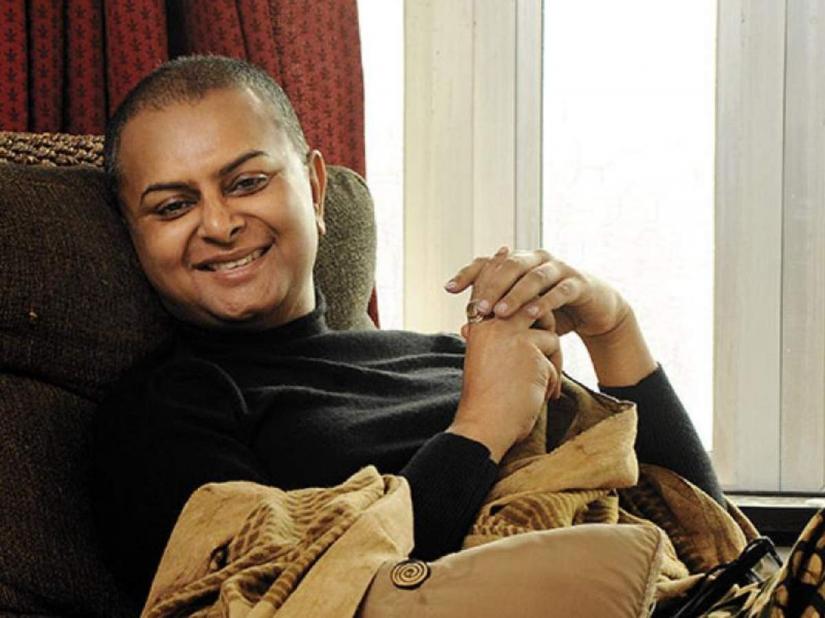After Satyajit Ray, it is acclaimed filmmaker Rituparno Ghosh who redefined the image of Bengali cinema and culture for the modern world -- and the young generation is now following in his footsteps, says writer-director Sangeeta Datta, who has made a docu-feature on the maestro. Datta has tried to capture Ghosh's transformation from an introverted, soft-spoken student of Jadavpur University who entered the world of an advertising agency as a copywriter, to not only become a multiple National Award-winning filmmaker but also a fashion icon of West Bengal who came out of the closet to celebrate the existence of the third gender.
Datta has tried to capture Ghosh's transformation from an introverted, soft-spoken student of Jadavpur University who entered the world of an advertising agency as a copywriter, to not only become a multiple National Award-winning filmmaker but also a fashion icon of West Bengal who came out of the closet to celebrate the existence of the third gender.
"I think Ritu laid the path for a new generation for self-expression through cinema in Bengal. Today, when I see the young filmmakers experimenting with new subjects in Bengali cinema that is going global, they really admit the fact that with his cinema, Rituparno actually shaped the Bengali film industry at a time when people stopped going to watch a Bengali film in the theatre," Datta told IANS in an interview here.
"After Satyajit Ray, Ritu really arrived as someone who brought back the intellectual middle-class Bengali audience to the theatre."
Datta's docu-feature "Bird Of Dusk" had its India premiere at the 20th MAMI Mumbai Film Festival, which ended here earlier this month.
Ghosh, whose cinema explored human relationships with a bold depiction of sexuality, died following a cardiac arrest in 2013 when he was just short of 50. He had won 12 national and several international awards during a two-decade journey spanning 19 movies.
Asked about how she treated the life journey of the filmmaker of "Dahan", "Raincoat" and "Chokher Bali" fame, Datta said: "I had seen Ritu from college days when he used to get bullied at the hands of other guys because he was not necessarily masculine and that made him more introverted. He formed his world through writing and reading... his knowledge was his power."
She said she had seen Ritu gradually became a confident person who embraced his creative ideology and sexuality. "I wove the story chronologically with utmost sensibility," she added.
"Bird of Dusk" offers various aspect of Ghosh's personality and equation with his regular collaborators like producers, actors, cinematographers and film editors.
From veteran Bengali actor Soumitra Chatterjee to names like Nandita Das, Sharmila Tagore, Aparna Sen, Konkona Sen Sharma, Arjun Rampal, Prosenjit Chatterjee, the film features many personalities.
"When I was making the film, actors like Arjun Rampal very happily and willingly shared his story of how Rituparno turned the Bollywood actor into a performer in the film 'The Last Lear'.
"Since I was not a part of the film 'Shubho Mahurat' which featured Sharmila Tagore and Rakhee Gulzar, I did not know what happened on set. Sharmila di shared how she disliked the fact that Rituparno was trying to be political and playing up her against Rakhee," shared Datta, who made the feature film "Life Goes On" with Sharmila and Soha Ali Khan.
She also worked with Ghosh on films like "Chokher Bali", "Antarmahal: Views of the Inner Chamber" and "Raincoat" among others.
What is the one thing she misses the most about Ghosh?
"Apart from working with him as an associate director, our interest in Tagore's literature, art, music... It brought us together and we became very good friends. I miss our calls, our endless conversation on several topics that I cannot have with anyone so often because he was a really well-read man," Datta said on a nostalgic note.
As she got a bit emotional, Datta said: "I really lost a close friend... Ritu went too fast....that was not an age to die."
 Entertainment
Entertainment
30727 hour(s) 35 minute(s) ago ;
Morning 02:29 ; Friday ; Apr 19, 2024
'Rituparno Ghosh led self-expression of Bengal's new gen via cinema'
Send
Bangla Tribune Desk
Published : 00:14, Nov 12, 2018 | Updated : 00:24, Nov 12, 2018
Published : 00:14, Nov 12, 2018 | Updated : 00:24, Nov 12, 2018
0 ...0 ...
/hb/
Topics: Top Stories
- KOICA donates medical supplies to BSMMU
- 5 more flights to take back British nationals to London
- Covid19: Rajarbagh, Mohammadpur worst affected
- Momen joins UN solidarity song over COVID-19 combat
- Covid-19: OIC to hold special meeting
- WFP begins food distribution in Cox’s Bazar
- WFP begins food distribution in Cox’s Bazar
- 290 return home to Australia
- Third charter flight for US citizens to return home
- Dhaka proposes to postpone D8 Summit
Unauthorized use of news, image, information, etc published by Bangla Tribune is punishable by copyright law. Appropriate legal steps will be taken by the management against any person or body that infringes those laws.
Bangla Tribune is one of the most revered online newspapers in Bangladesh, due to its reputation of neutral coverage and incisive analysis.
F R Tower, 8/C Panthapath, Shukrabad, Dhaka-1207 | Phone: 58151324; 58151326, Fax: 58151329 | Mob: 01730794527, 01730794528


